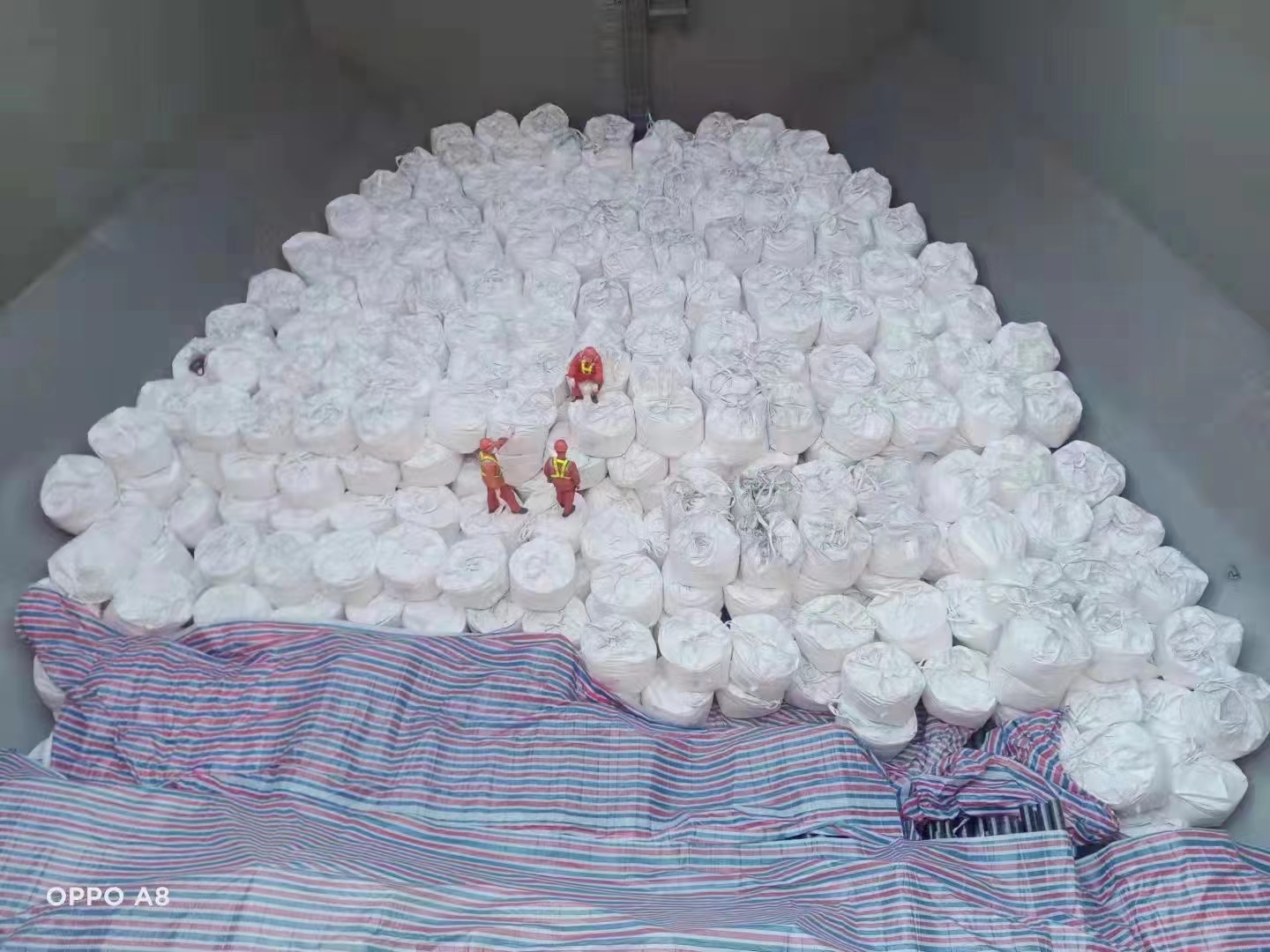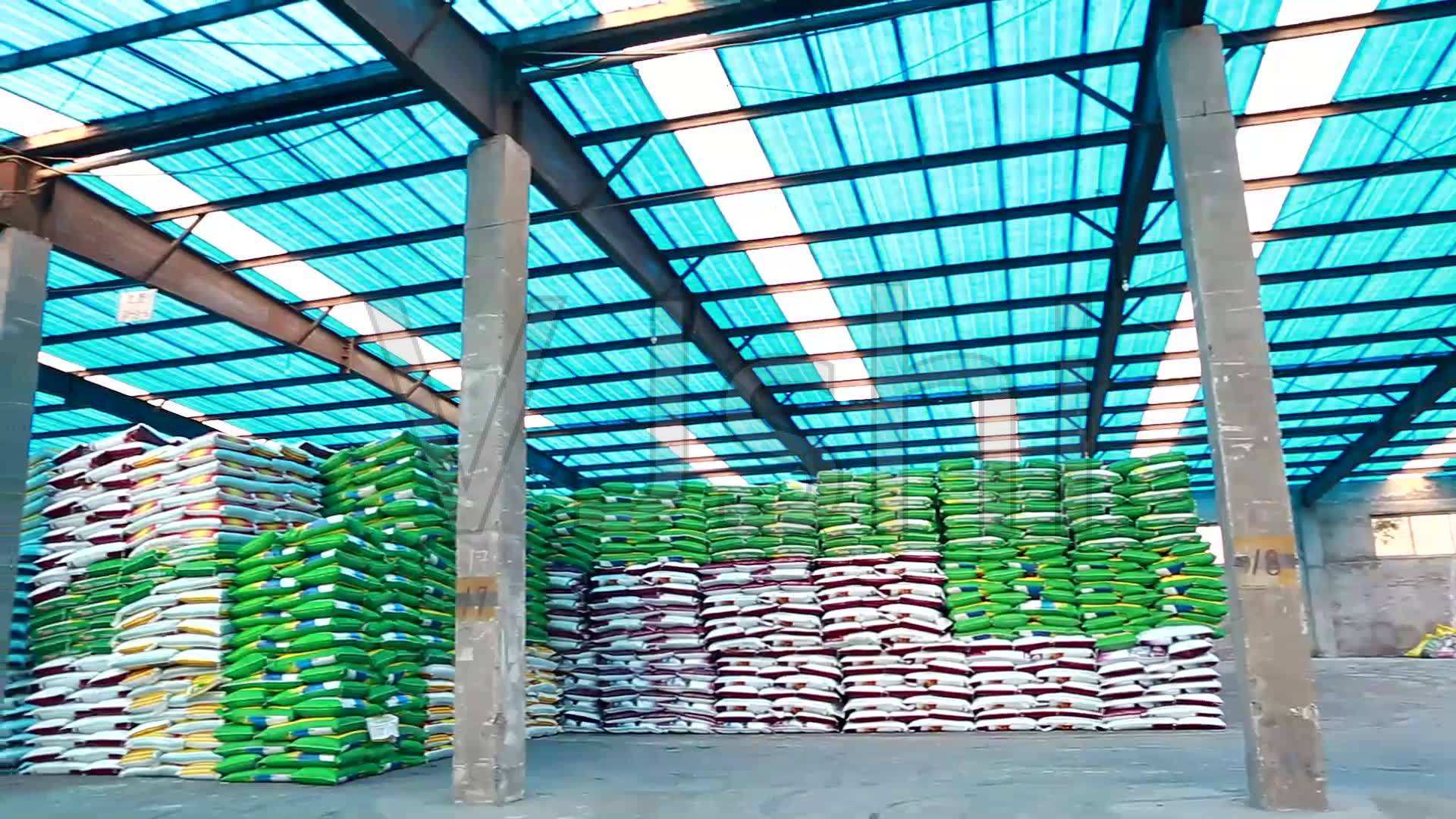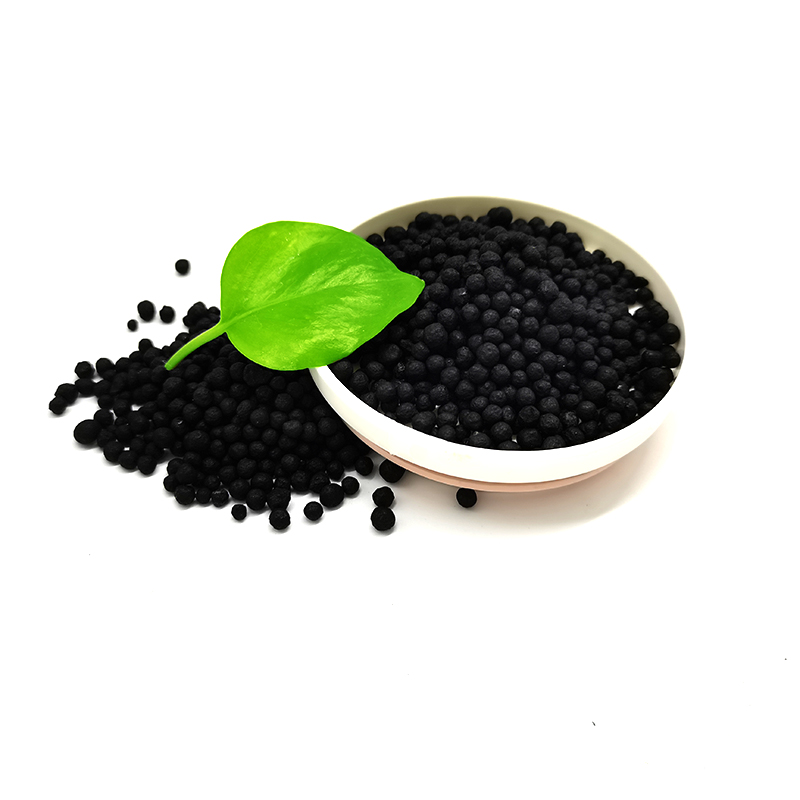Introduction
The worldwide supply and distribution of fertilizers is a key contribution for the agriculture system of our planet. And wholesale fertiliser companies shouldering this responsibility means the constraint of our food security and agricultural production process would be mitigated stimulantly. For achieving better quality of fertilizers and their marketing in vast assortment around the globe, SHANDONG LOYAL CHEMICAL CO.,LTD, acting as one of representative institutions of them, is playing a basic role in agricultural civilization in the promising world future.
These facilities are not just the intermediaries for fertiliser shipments world-wide, but the innovators in the various fertiliser types and formulations used by farmers to best serve producers in different global agricultural markets. As the companies trading these products are the links in the supply chain – from the costs associated with agricultural production to the sustainability practices used – describing the firms and their business models, market strategies and role in agriculture will illustrate the importance of companies like this to the world’s agricultural supply chain.
Profiling SHANDONG LOYAL CHEMICAL CO.,LTD
SHANDONG LOYAL CHEMICAL CO.,LTD is one of the most well-known enterprises in wholesale fertilizer manufacturing due to its various innovations and vast market sales. Since it is established, SHANDONG LOYAL is one of the leading company of fertilizer production and sales, playing an important role in improving agricultural productivity of the world.
Since its establishment in the early 2000s, SHANDONG LOYAL has been paying attention to the overseas market though it had started from the domestic market.The company has expanded its business globally by taking advantage of the fact that Chinese fertilizer has a high performance to price ratio and is compatible with locally available raw materials. Moreover, the key to the sustainable development of both traditional and modern farms and agricultural enterprises is to provide fertilizer solutions tailored to local farming needs.
While its salesforce has a long history in the fertiliser industry, the company itself is a modern operation that has made extensive investments in the latest technologies for fertiliser production. Those technologies produce products that enable farmers to maximise yields. But more importantly, they boost efficiency and minimise environmental destruction. For instance, the fertilisers include controlled-release products – fertilisers with a special coating that helps to provide nutrients at just the right times for plant growth, helping to prevent fertiliser runoff and maximising absorption.
Still, beyond provisioning, SHANDONG LOYAL’s impact on farming does not end there. Engaging in frontier agricultural research and development, the company works to produce fertilisers for the next generation of agriculture that can feed both rapidly growing populations and sustainable futures. SHANDONG LOYAL partners with agricultural scientists and institutions worldwide to continue to push the boundaries of innovation in growing the food that sustains everyone on our planet.
In short SHANDONG LOYAL CHEMICAL CO.,LTD contributes not only vast amounts of vitamins and minerals to the agricultural sector, but also the technological and ecological development needed for a sustainable development of agriculture. Their work emphasises the fundamental part made by wholesale fertilizer companies in ensuring the stability of the food chain.

Other Major Wholesale Fertilizer Companies
Whereas SHANDONG LOYAL CHEMICAL CO.,LTD is the market leader in the global fertiliser trade, other big businesses in the wholesale fertiliser industry are also major contributors to the global growth and development of sustainable agriculture through the regular innovative products and marketing strategies they continue to employ.
Yara International – headquartered in Norway with operations across the globe – supplies a comprehensive portfolio of mineral fertiliser products and precision farming, advocating sustainable crop nutrition and benchmarking practices that optimise yield while minimising environmental impact. Yara is a near-monopoly in fertiliser manufacturing, supplying much of the world’s fertiliser.
Nutrien Ltd: This is the world’s largest provider of agricultural products and services. Headquartered in Canada and operating in more than 16 countries, it provides farmers with a full range of nitrogen, phosphate and potash fertilisers, the essential building blocks for growing plants. In addition, Nutrien offers digital agriculture technologies that help farmers to increase production.
The Mosaic Company: Founded in the United States, The Mosaic Company specialises in the production of phosphate and potash fertilisers. With its portfolio of products, Mosaic helps farmers from all over the world enhance agricultural productivity and improve soil health. The company’s focus on the environment is evident in its efforts to reduce environmental impact and enhance phosphate and potash resource stewardship globally.
CF Industries: CF Industries Holdings, Inc, together with its subsidiaries, produces and distributes nitrogen fertiliser products in North America, the United Kingdom and other parts of the world. As the world’s largest nitrogen fertiliser producer according to its own self-reporting, its portfolio of facilities, feedstocks, products and technology, located primarily in North America and the U.K., enable it to efficiently provide nitrogen fertiliser products to agricultural markets around the globe. CF Industries is committed to safe, responsible and reliable operations that promote the health and safety of the communities in which it operates, and the success of its customers and employees, while minimising its environmental footprint.
Different strengths and innovations make for a diverse and resilient food production supply chain and enable the steady supply of more essential nutrients to improve food security and agricultural productivity around the world. Of the companies mentioned in this article, along with other big players operating in the sector, they are successful because they are leading the charge in the modernisation of the agricultural sector through sustainable innovation.
Trends and Innovations in the Fertilizer Industry
Yet the fertiliser business itself is evolving on a much shorter time horizons to meet the challenges of producing food, fibre and fuel in a sustainable manner, and along the way wholesale fertiliser companies are playing a pivotal role in introducing new technologies and practices.
Elaborated production technologies: Fertilisers that are more efficient and less harmful to the environment have been significantly developed in recent years. For instance, enhanced efficiency fertilisers (EEFs) are capable of slow or conditional release, which allows for less nutrient losses to water or the atmosphere through leaching or volatilisation. Nutrients are thus made available for plant use over a longer time span and are therefore less harmful to the environment.
Precision agriculture technologies are transforming how we apply fertiliser. With GPS and sensor-based technologies that allow scientists to precisely map nutrient needs in soils across fields, we can apply fertilisers at variable rates site-specifically. This, in turn, reduces both over application and under application helping farmers save money and make the most of their inputs. If you notice, precision agriculture entails a lot of plurals and variations! To that end, we are working with all farming equipment providers to have their equipment GPS / precision ag opportunity-ready by 2020. Companies such as Smart Ag Solutions are leading the way with equipment to help farmers adopt these practices.
Bio-based Fertilisers: Stimulating nutrient availability to plants with bio-based fertilisers, for instance, has become increasingly common in recent years. These fertiliser forms, which contain inputs such as compost, manure or other organic waste products, can support soils by improving their health while providing required nutrient sources, with innovations in microbial fertilisers using the assistance of ‘friendly’ bacteria or fungi holding particular promise.
Regulatory Compliance and Sustainability Initiatives: Leading producers of fertilisers are striving to ensure compliance with international standards of environmental protection by: 1) reducing the contact footprint of fertiliser productions processes; and, 2) developing fertiliser products which contribute to sustainable agriculture practises. Many of these fertiliser companies are also involved in carbon trading and other green business practices to gain offset of their full contact footprint.
These trends capture the agility of the fertiliser industry and its response to the challenges of the world. By investing in new technology and in the sustainability goals of farming and industry around the globe, wholesale fertiliser companies are investing in the world’s ability to feed itself while conserving and protecting the environment.

Challenges in the Wholesale Fertilizer Market
The wholesale fertiliser industry is confronting three major challenges which are affecting industry operations and changing levels of competition and collaboration in the market. Successful responses are also needed to ensure a secure supply and the future sustainability of the world’s food production.
Logistical Challenges: We are dealing with products that are produced in, and have to reach, locations dotted all over the globe. Shipping chemical products globally is not uncommon but it has a lot of moving parts. Transporting potash, nitrogen or phosphate fertilisers to plantations around the world requires companies to deal with multiple jurisdictions, transportation issues, insurance challenges and the risks associated with large chemical products. Delays or disruptions could lead to shortages across the world and affect agricultural productivity.
Regulatory Pressures: Increasing regulatory requirements within the wholesale fertiliser industry necessitate adherence to strict environmental, health and safety guidelines that are being enacted by government regulators across the globe. The cost and time required to comply with increasing regulatory controls could impact the ability to remain profitable for wholesale fertiliser companies.
Environmental problems: Fertiliser production uses energy and creates greenhouse gases, and the usage itself has associated environmental problems, including nutrient runoff that pollutes water, as well as the production of tonnes of other byproducts such as plastics that come in fertiliser packaging and delivery systems. Environmental groups as well as consumers put pressure on companies not only through regulations but also through sustainability initiatives to make the production of their products more environmentally friendly.
High market volatility. The fertiliser market is highly volatile, with large variations in both prices and demand based on external factors such as changes in international agricultural policies, times of economic recession or surplus, or fluctuations in input prices. These factors create a volatile market in which it is very difficult for the industry to plan and forecast its business.
Technological advancements and adoption: Following technological advances inevitably helps to solve technological problems. However, even though technological advancements in agriculture offer numerous solutions to challenges in the industry, the actual adoption of these new technologies can itself create further challenges, as businesses that research and develop new products need to convince farmers and other agricultural businesses to try and adopt new products and technologies.
To do this, companies are investing in better logistic solutions, discussing policy with regulators, designing green products, and building more advanced technologies. Institutions and cooperation will be essential to keep the fertiliser supply stable and promote global food security.
Conclusion
Controlling the world’s fertiliser flow is how leading wholesale fertiliser companies keep the world eatingUsually, when withholding a resource, controlling its flow involves restricting access to the commodity. Think of Starbucks withholding its brew so as to force eager patrons to pay inflated prices for coffee. It’s not usually done to promote agricultural production or food security in metropolitan China or Peru, though – that would be like Société Générale, one of the world’s largest financial-services groups, raising interest rates on client loans to maximise its lending portfolio.
But when it comes to fertiliser, controlling the world’s fertiliser flow is how the world’s leading wholesale fertiliser companies keep the world eating. To maintain their control over the rare resource, the largest fertiliser companies are diversifying their interests. SHANDONG LOYAL CHEMICAL CO.,LTD and its counterparts aren’t just shipping fertiliser.
Looking ahead, the wholesale fertiliser market is likely to change further as producers become even more environmentally conscious and embrace ‘green practices’ – for example, committing to invest in plant and machinary upgrades that harm the environment less, while extracting and using resources more productively. The use of digital tools and analytics in supporting fertiliser supply strategies may also soon become the norm, especially as larger companies leverage them to optimise distribution networks and fine-tune fertiliser application onto farmers’ fields.
In short, as the global population grows and the need for food increases, the role of efficient, sustainable fertiliser supply chains will only become more important. The wholesale fertiliser industry will adopt an ever more vital role in helping agriculture stay productive and sustainable as it adapts to changing marketplace conditions and technological innovation going forward.
Here are some valuable references:
- Nutrien Ag Solutions Wholesale: This company offers a comprehensive range of agricultural products, including fertilizers, to wholesale clients. They emphasize reliability and quality, having built strong relationships with independent retailers and cooperatives over the past 40 years.
- Midwestern BioAg: Specializing in both conventional and organic fertilizers, Midwestern BioAg provides a wide array of soil amendments and micronutrients essential for improving soil quality and agricultural yields. They also offer unique products like TerraNu Technology fertilizers, which improve plant nutrient uptake over the growing season.
- The Andersons Plant Nutrient Group: This company manufactures, packages, and distributes a broad range of dry and liquid industrial products, including various fertilizers. They focus on both efficiency and sustainability in their product offerings.
- ADM Farm Direct Fertilizer: ADM offers a direct purchase model that allows growers to buy fertilizers at market prices up to 12 months in advance of delivery. They focus on maximizing profits for growers through smart purchasing and financial options, complemented by their extensive commodities trading expertise.







